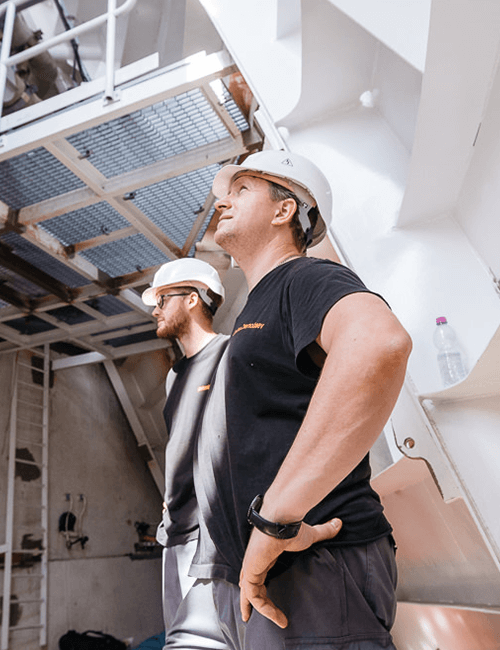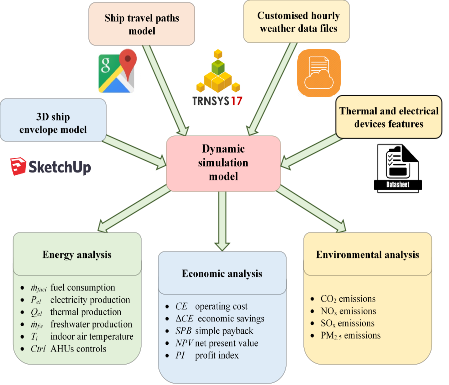Our vision for novelty value
HEMOS will develop a novel design methodology for enhancing ships’ thermal load and energy demand assessment based on a tailored dynamic simulation approach. A dynamic simulation model can consider the entire ship’s energy system and environmental effects. We are entirely optimising the whole vessel/plant system to minimise diverse objective functions. This allows us to demonstrate the benefits of access to data collected on a large cruise ship. We will implement new system engineering and development activities, including unique system descriptions, principles and logic. Furthermore, we will enforce a small-scale pilot project to verify the calculation model. A new design methodology for optimal efficiency will verify heat system balancing on ships.
HEMOS proposes a novel design methodology for enhancing the thermal load and energy demands assessment of a ship by exploiting a novel tailored dynamic simulation approach. The applicability of the dynamic approach applied to a ship – modelled as a moving energy system (envelope + plants) subjected to marine weather conditions – was proposed by UNINA and proved through numerical case study analyses. This approach, never applied before, allows overcoming the issues linked to the traditional ship systems design method based on steady-state conditions (e.g. for the design of HVAC systems ISO7547). According to recent numerical studies conducted by UNINA [1], by exploiting the proposed methodology for the optimal design and operation of the ship waste heat recovery and innovative technologies, significant energy savings, up to 16%, can be achieved. The use of dynamic simulations is expected to aid the design of ships, especially energivorous cruise ships, by enabling the proper selection and sizing of onboard energy systems and the implementation of optimal operation of control strategies.
|

Diagrams
As a first step, we will investigate a Royal Caribbean Group cruise ship, gather data about its energy, and learn about the vessel’s system configurations, topology, and interconnections between diverse ship subsystems, the technical design drawings, as well as on-site inspection.

Next, we will develop a dynamic optimization and calculation model. The dynamic simulation will aid the design of ships by enabling the proper selection of onboard energy systems and the implementation of advanced control strategies for the optimal operation of the vessel, reducing its energy cost and environmental impact. The use of real data obtained on the selected Royal Caribbean Group cruise ship will also allow for the calibration and validation of the simulation model.

High-tech energy efficiency development

This project has received funding from the European Union’s Horizon Europe research and innovation programme under grant agreement No. 101056909.
Follow our journey of capturing the lost heat!
© 2022 Copyright HEMOS project. All Rights Reserved.

This project has received funding from the European Union’s Horizon Europe research and innovation programme under grant agreement No. 101056909.
Follow our journey in capturing the lost heat!
© 2022 Copyright HEMOS project. All Rights Reserved.
